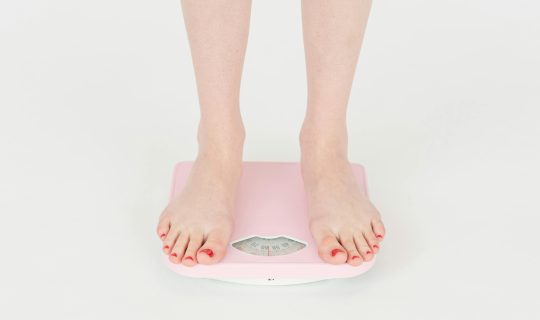Ozempic, Wegovy and other GLP-1 agonists — often referred to as weight loss jabs — have become almost impossible to ignore. They’re widely promoted for appetite control, weight loss and improved blood sugar regulation, and for many busy women they seem like a welcome shortcut when trying to lose some extra weight (not discussing here…
Support Your Liver
by Lucia Stansbie
January is love your liver month, an initiative organised by the British Liver Trust.
The liver is the biggest organ in our body, using up to 27% of our resting metabolism and filtering 1.4 liters of blood per minute. The liver is involved in hundreds of essential body functions the most important being:
– Fighting infection and disease
– Destroying poisons and drugs (including alcohol)
– Cleaning the blood from microbes and pathogens
– Controlling the amount of cholesterol
– Processing food once it has been digested
– Producing bile, which is needed for fats digestions and waste excretion
– Heat production
– Synthesis of plasma proteins
– Storage of vitamins (A, D, E, K, B12), iron, glycogen and copper.
Is easy to understand that keeping our liver healthy and functioning to its full potential is vital for overall health. The liver can get damaged by excessive fat accumulation, leading to no-alcoholic fatty liver disease (NAFLD), the most common liver disease worldwide which if left untreated can eventually lead to liver inflammation and finally to cirrhosis. Excessive alcohol intake can also damage the liver, as well as viral infections such as hepatitis.
A compromised liver, won’t be efficient in dealing with its many functions, having detrimental effects on overall health from immunity, to cholesterol levels, blood glucose levels, digestion and micronutrient status.
How can nutrition support the liver?
Nutrition is vital when considering liver health, and various interventions and factors should be considered.
– Keep a healthy weight is important when it comes to liver health, as obesity has been associated NAFLD. A 5% reduction in BMI is accompanied by 25% reduction in liver fat, making weight management a powerful tool to preserve liver health.
– The Mediterranean diet is considered one of the healthiest diet, and its benefits are particularly important for liver health, because of its rich in polyunsaturated fats, polyphenols, vitamins and carotenoids content, which exert a anti-inflammatory and anti-oxidant effects protective for the liver.
– Alcohol is considered a toxin by the body, and the liver is the organ in charge of metabolizing this toxin to make it harmless. Excessive alcohol consumption or binge drinking can damage the liver, with studies assessing that binge drinking in youth precedes the development of cirrhosis in adulthood. A moderate alcohol consumption and avoiding binging is essential when discussing liver health.
– Reducing processed foods in favour of antioxidant rich vegetables and whole grains can be protective for liver health, as a very processed diet rich in fructose (used in many processed foods) can damage the liver increasing fat accumulation in this organ.
Best liver foods
Studies have assessed that certain foods can be beneficial for liver health, and consequently should be part of everyday’s diet:
– Carotenoids (compounds that give fruit and vegetables a distinctive orange colour) accumulate in the liver, where they exert an antioxidant action. Studies show that they can be protective towards NAFLD and other forms of liver inflammation.
– Studies found that coffee can be protective towards NAFLD and liver fibrosis as it can raise hepatic enzymes. Coffee can also be protective against further liver damage in patients with chronic hepatitis B and C.
– Studies have found that omega3 and omega6 polyunsaturated fats, can reduce fat accumulation in the liver, possibly preventing NAFLD. Oily fish, nuts and seeds are good sources of this healthy fats.
Supporting liver health is key to reach optimal health, and diet is essential in doing so. A registered nutritionist can help you understand if your current diet is not supporting enough and if there are signs of liver malfunction. A taylor made diet rich in liver supporting nutrients can help reversing, supporting liver and overall health again.
Resources
Abenavoli, L., Di Renzo, L., Boccuto, L., Alwardat, N., Gratteri, S. and De Lorenzo, A., 2018. Health benefits of Mediterranean diet in nonalcoholic fatty liver disease. *Expert Review of Gastroenterology & Hepatology*, 12(9), pp.873-881.
Anania, C., Perla, F., Olivero, F., Pacifico, L. and Chiesa, C., 2018. Mediterranean diet and nonalcoholic fatty liver disease. *World Journal of Gastroenterology*, 24(19), pp.2083-2094.
Bataller, R., Arteel, G., Moreno, C. and Shah, V., 2019. Alcohol-related liver disease: Time for action. *Journal of Hepatology*, 70(2), pp.221-222.
Birerdinc, A., Stepanova, M., Pawloski, L. and Younossi, Z., 2011. Caffeine is protective in patients with non-alcoholic fatty liver disease. *Alimentary Pharmacology & Therapeutics*, 35(1), pp.76-82.
Elvira-Torales, L., García-Alonso, J. and Periago-Castón, M., 2019. Nutritional Importance of Carotenoids and Their Effect on Liver Health: A Review. *Antioxidants*, 8(7), p.229.
Hodge, A., Lim, S., Goh, E., Wong, O., Marsh, P., Knight, V., Sievert, W. and de Courten, B., 2017. Coffee Intake Is Associated with a Lower Liver Stiffness in Patients with Non-Alcoholic Fatty Liver Disease, Hepatitis C, and Hepatitis B. *Nutrients*, 9(1), p.56.
Marchesini, G., Petta, S. and Dalle Grave, R., 2016. Diet, weight loss, and liver health in nonalcoholic fatty liver disease: Pathophysiology, evidence, and practice. *Hepatology*, 63(6), pp.2032-2043.
Morisco, F., Vitaglione, P., Amoruso, D., Russo, B., Fogliano, V. and Caporaso, N., 2008. Foods and liver health. *Molecular Aspects of Medicine*, 29(1-2), pp.144-150.
Petta, S. and Marchesini, G., 2017. Coffee and tea breaks for liver health. *Journal of Hepatology*, 67(2), pp.221-223.
Seitz, H., Bataller, R., Cortez-Pinto, H., Gao, B., Gual, A., Lackner, C., Mathurin, P., Mueller, S., Szabo, G. and Tsukamoto, H., 2018. Alcoholic liver disease. *Nature Reviews Disease Primers*, 4(1).
Setiawan, V., Porcel, J., Wei, P., Stram, D., Noureddin, N., Lu, S., Le Marchand, L. and Noureddin, M., 2017. Coffee Drinking and Alcoholic and Nonalcoholic Fatty Liver Diseases and Viral Hepatitis in the Multiethnic Cohort. *Clinical Gastroenterology and Hepatology*, 15(8), pp.1305-1307.



